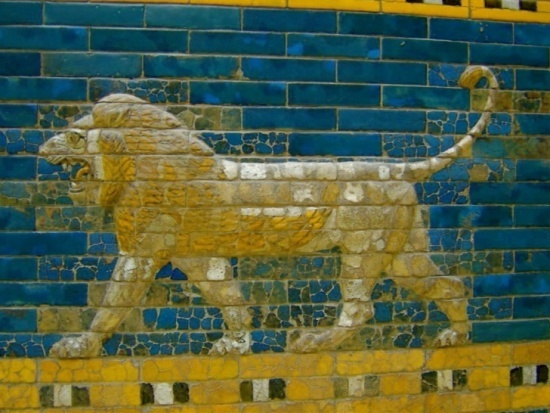"A Strong Covenant" (The Seventieth Week of Daniel) -- Daniel 9:24-27
 Wednesday, November 8, 2017 at 02:46PM
Wednesday, November 8, 2017 at 02:46PM 
The Eighteenth in a Series of Sermons on the Book of Daniel
As famed philosopher-catcher Yogi Berra once quipped, “when you come to a fork in the road, take it!” When we come to Daniel 9:27 and read of one who makes a strong covenant with the many for one week, we have come to such an interpretive fork in the road. Is Daniel speaking about a future Antichrist making a seven-year peace treaty with Israel which marks the beginning of the tribulation? Or is Daniel instead speaking of the coming of the Messiah, who makes a strong covenant on behalf of those whom he is about to redeem at the climax of his messianic mission? The choice is fundamental as to how we understand this prophecy. Christ or the Antichrist?
We have spent the last several sermons working our way though Daniel 9, a passage which includes the famous prophecy of the “seventy weeks” (vv. 24-27). As we noted throughout our time in this chapter, this is one of the most disputed and difficult prophecies in all the Old Testament. But everyone does agree that it is also one of the most important of Old Testament prophecies. Although those influenced by dispensationalism see this prophecy as predicting a future seven-year tribulation period and a peace treaty between Antichrist and Israel, the prophecy makes much better sense when seen as a messianic prophecy, predicting the coming of Jesus (Israel’s Messiah) with great accuracy and specificity–the so-called “messianic interpretation.”
Based upon our time spent in this chapter previously, it should be clear that understanding the context and keeping the Old Testament background in mind are absolutely essential, if we are to interpret the “seventy weeks” correctly. We begin by reminding ourselves that the seventy weeks prophecy of Daniel 9:24-27 is a direct answer from YHWH to the prophet Daniel’s petitions offered in his prayer for the exiles in Babylon (the first 19 verses of chapter 9). Daniel is well aware that the prophet Jeremiah foretold of seventy years of exile for the Jews now living in Babylon–Daniel among them. Daniel is also aware that the seventy years are about up. He knows that Jeremiah prophesied that YHWH promised that his people will be allowed to return to Judah to rebuild the city of Jerusalem and the temple. Knowing the day of release from exile is at hand, Daniel is greatly worried about his people. Will they remember YHWH’s covenant promises? Will they repent of their sin and unbelief?
In his prayer, Daniel is deeply moved to repent of his own sins, as well as pray on behalf of his struggling people–Judah. It is as a direct answer to Daniel’s fervent prayer for Israel on the eve of their possible return to Judah, that YHWH sends Gabriel to reveal to Daniel what the future holds for Judah, Jerusalem, and the temple–the purpose for the “seventy weeks” prophecy of verses 24-27. The good news Gabriel reveals to Daniel is that the exiles will return to Judah, and they will rebuild the city, and the temple. The bad news is that at some point in the future, Jerusalem will be left desolate once again. But this is not a prophecy of despair. Rather, it is a prophecy which foretells of the coming of Israel’s Messiah who will usher in the ultimate jubilee year, as well as the eternal Sabbath for the people of God. The exiles will return home and rebuild. But Jerusalem and the temple will experience desolation yet again, because a greater exile remains–separation from God’s presence due to human sin. Desolation is not the final word, however, YHWH will send someone (a Messiah) to deal with the root of our exile from YHWH–the guilt of our sin. This will be accomplished as the seventy weeks run their course.
To read the rest of this sermon, Click Here


Reader Comments